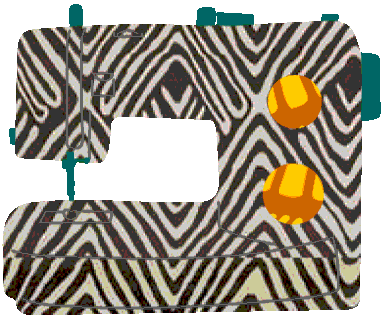Lena Elhassan: Exploring the African Diaspora as a Key Market Segment for African Luxury Goods
Lena Elhassan is a force to be reckoned with. Born in the UAE with strong Sudanese roots, she graduated with a BA in Design before completing a postgraduate diploma in Buying and Merchandising in London. She worked with Harrods and Bvlgari for over 6 years before undertaking an MBA in Luxury Paris.
Fashionomics Africa caught up with Lena for an exclusive interview to discuss her work, drive and inspiration.
- When did you first develop an interest in fashion, and do you remember what exactly sparked it?
During my annual trips to Sudan in my early childhood, I would attend numerous weddings where I marvelled at the vibrancy of the traditional garments, cloths, colours and textures that exuded sheer magnificence. My favourite ceremony was the ‘Subhiya’ whereby the bride would have 3 costume changes that ranged from the extravagant to the demure and dance to the rhythmic beats of the drums. The excitement that centered around this coupled with the way the design and fabrication of the garment was used to accentuate the dance was one of my earliest memories. I knew there was something special and from there it just grew.
- How did you find your way into the fashion industry? What were the main challenges you faced in getting your foot into the door?
Being a child of immigrants often means we feel pressure to pursue conventional careers, and a preference for STEM (Science, Technology, Engineering, Mathematics) jobs, for the sake of job security and upward social mobility. Along the journey of trying to appease familial expectations, I found myself nevertheless gravitating towards fashion again. My pursuit was challenging- it most definitely was not accidental and took a great deal of personal perseverance. The first step is never how you imagine it- the journey was humbling throughout, from your first internship (which is fundamental) all the way to managing a team.
I now find myself in a fashion scene which is forever changing, not only in the literal sense of cyclical trends but now that we have lifestyle incorporated and its tapping into our consciousness more than ever before. Although it poses new challenges, I believe in this space great things can happen- specifically with customers demanding transparency- its the time we are seeing the true meaning behind fashion and consumption.
- Tell us about your experiences working with Bvlgari and other renowned fashion houses
Working with Bvlgari was instrumental to where I am now- it really opened my eyes to the different cultures that the Luxury industry attracts. Owing to how diverse and culturally rich our team was, we were able to more closely accommodate to the varied needs of our customers. It also highlighted the meticulous planning of each step from product curation to the selling ceremony.
- What brought you to Paris?
It’s no secret that Paris is the fashion and luxury capital of the world. I felt the urge to re-route and understand the true origins of these industries and the magic behind this city. To me, it's like the meeting of all cultures, cultivated and crafted, packaged and branded in an exceptional way before being distributed to the world.
- What made you decide to do your masters in fashion and luxury management?
My professional experience granted me access and insight into this power industry. I was intrigued by how similar it operated to fashion to some degree- but used its limitations (of consumption) in a more sophisticated way- in order to remain ‘exclusive’. I aim to consolidate a 360 view of this industry marrying my professional and academic experiences and apply this to Africa’s emerging luxury market.
- In your opinion, what are the most steps that need to be taken to develop African fashion?
To sum up, I would say, considered design and execution, a sustainable and agile supply chain and in my eyes- the most important- is identifying and understanding your customer as well as their needs/desires.
- What have you found throughout your thesis research, in terms of the African diaspora being a key market segment for African luxury goods?
The research sparked from wanting to involve my thesis with the luxury market in Africa. I found a connectivity with the Diaspora wanting to support the designers of the continent but somehow marketing communication was absent or not leveraged to its full potential. The study is in the preliminary stages. There is work to be done with strengthening the supply chain and production processes but the resources and customers are present- the study aims to connect the missing links. In a western context this can be useful too- as this segment is often ignored or misrepresented.
- What are you currently working on and what are your plans for the future?
I would love to get involved in implementing projects centered around growing the profile of the continent in the near future. For now, I aim to complete my Masters and to effectively execute the brief I set myself on addressing the consumer behaviours of the African diaspora.
- What is your advice to young women looking to break through in the world of fashion?
Perseverance is key. The industry is highly competitive and challenging. What you see from the outside is the polished side- behind the scenes, it is orchestrated by research, sourcing, design and craft, engineering, manufacturing, branding and business acumen. This is what makes it such a rich and exciting industry- but also quite ruthless given the timeframe needed to achieve what it does. The industry is forever evolving- so always keep yourself refreshed with what's going on- there are endless opportunities to thrive and if it's not fulfilling a sector- create it! Take each opportunity no matter how small it may seem, the journey is never how you plan it to be- and that's the beauty of it.
